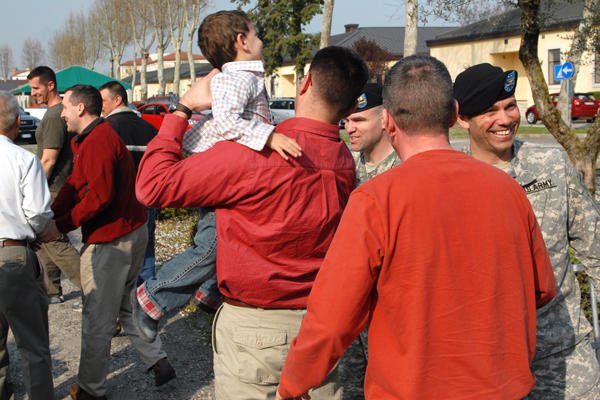Parents
While your son or daughter is deployed, you may be experiencing many conflicting feelings: pride, worry, fear, love, and frustration—just to name a few. You may not be able to communicate as frequently as you would like, and you may have concerns about whether your child is safe or whether she will be the same when she returns.
"I find online Army mother support groups and specific groups for my son's Battalion. And I tell myself it's okay to have 'weepy' days."
—Army mom
Being a Safe Harbor
Despite all of this, you want to create a safe space for your service member when she does communicate. You want to be a support person who is free of judgment and pressure. Lay the groundwork now in case she has any problem adjusting when she comes home. If your service member can associate you with unconditional love, then she will probably consider you a harbor of support if she is having a hard time when she returns home.
This is exactly the kind of relationship you want to foster with your service member. It may take patience on your part, but with an equal amount of understanding, peer support, and self-care, you may be able to create this relationship if it doesn't already exist.
"When my son was deployed, I only got to talk to him once every couple of weeks. I worried about him constantly. We could only talk for a few minutes. Looking back now, all I remember is telling him to 'keep his helmet on and his butt down.' And, that I loved him. Every time I got off the phone, I would be so proud of myself for not crying. I know that would have killed him. The entire fifteen months he was gone, he never heard me cry. I think that was the best thing I did for him while he was gone."
—National Guard parent
Extended Family and Friends
The most important thing for extended family and friends to remember during deployment is to do everything you can to remain supportive of your service member and immediate family. The best way to do this is to try to have a face-to-face meeting with the family or communicate directly with your service member. Maintaining a strong relationship requires a little work and fact-finding; the more you know, the more you can do.
Join the Care Package Assembly Line or Send Letters
Many family members will assemble monthly care packages to send to their service member. See if you can add your own items to this group gift, or create a care package of your own. Similarly, you can send letters of support and encouragement to both your service member and her family members.
This excerpt is provided courtesy of the acclaimed free digital resource "Everyone Serves." Download your free copy with additional media content today at everyoneservesbook.com.

















